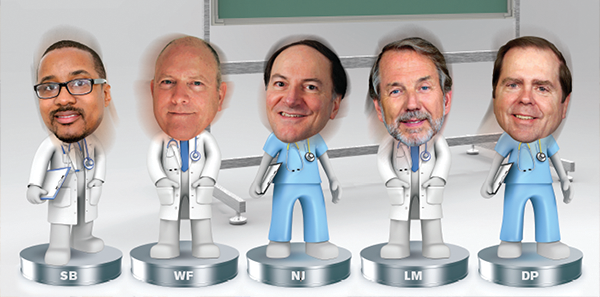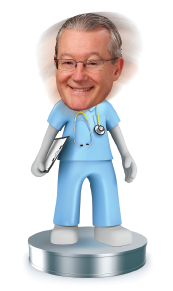
For decades, the concepts of democracy and democratic group practice have been held as the standard to strive for in emergency medicine. As democracy is akin to motherhood and apple pie, these concepts are accepted today, perhaps, just as they were decades ago. However, with the evolving landscape of health care, is it time to revisit these concepts? Is democracy a group structure or an ideal? Democracy can provide an opportunity to participate in group decisions and control one’s own destiny (to a certain extent), but democracy means that, on occasion, you may not get what you want if you are in the minority. Is democracy truly what emergency physicians want, or has fair and equitable treatment become the practical definition of “democracy”? In Part 2 of this three-part series, EM leaders from different walks of life will weigh in on the following questions. Read Part 1.
Explore This Issue
ACEP Now: Vol 34 – No 11 – November 2015Moderator
 Ricardo Martinez, MD, FACEP, chief medical officer for North Highland Worldwide Consulting and assistant professor of emergency medicine at Emory University in Atlanta
Ricardo Martinez, MD, FACEP, chief medical officer for North Highland Worldwide Consulting and assistant professor of emergency medicine at Emory University in Atlanta
Participants
Savoy Brummer, MD, FACEP, vice president of practice development at CEP America in Belleville, Illinois, and chair of the ACEP Democratic Group Section
Wesley Fields, MD, FACEP, past chair and the most senior member of the Board of Directors of CEP America in Emeryville, California
Nicholas J. Jouriles, MD, FACEP, president of General Emergency Medical Specialist Incorporated, a single-hospital group in Akron, Ohio
Lynn Massingale, MD, FACEP, executive chairman of TeamHealth in Knoxville, Tennessee
Dighton C. Packard, MD, FACEP, chief medical officer of EmCare in Dallas
RM: Does being a democratic group have associated with it both positive and negative obligations and responsibilities that we don’t talk about much?
NJ: We’re a group that’s been around for almost 40 years, we staff one health system, everyone has a vote, and everyone is treated equally. This conversation has been brilliant because I think everyone has brought up the exact same issues that really are facing the specialty and the people involved. I do believe that a small group can have the chops to do things, and in our group, everyone pitches in. Everyone doesn’t do the exact same thing, but everyone does a comparable amount of work, just different work. I get tasked to run the show and my program director gets tasked for most of the academics because we do staff one of the oldest residency programs in the world. We don’t get treated seriously because I can’t walk into a payer the same way Lynn, Dighton, or Wes can; they can get a lot more leverage out of it than I can. I pretty much go in and do as I’m told, so that’s a fault for the system. There are certain things that, for a democratic group, make no sense whatsoever. An example from our particular group is we once had a 30-minute discussion about what color scrubs we were going to wear because everyone had to vote. That’s a complete waste of time. We’re also facing something that is being attributed to being generational, and I don’t know if that’s fair or not, but we’re seeing more and more people graduating from medical school and residencies who have no interest in doing what Wes, Dighton, Lynn, and I do every day. They want to see patients and go home. They don’t want to have ownership. They just want to get a paycheck, and that’s neither good nor bad, but it makes it very difficult for a group like mine that relies on people to have individual incentives to step up to the plate to work the extra shifts, to write a check to cover the capital costs. People aren’t interested in doing that, and I think that is more of a danger than anything to the democratic group than anything else. I think we’re facing a generational change at the same time that the regulations, obligations, and accountability, as outlined by Lynn, are there, so it’s a mismatch that’s going to make this particular model an endangered species.





No Responses to “Emergency Medicine Leaders Discuss How Democratic Groups Manage Scale, Consolidation”